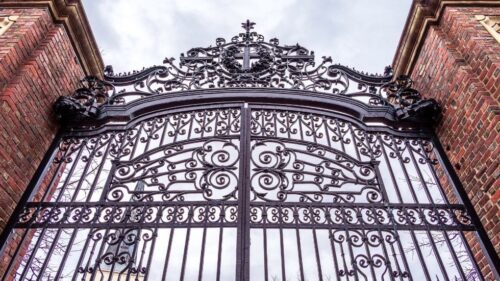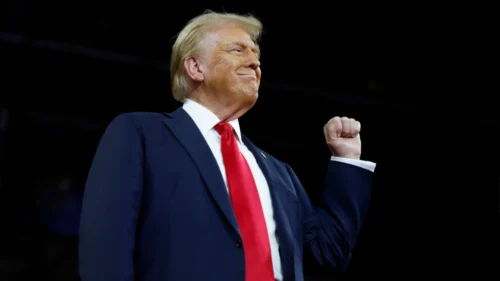The credibility of elite universities has fallen far, and not without reason.
For decades, admissions offices singled out Asian-American applicants for unfairly high admissions standards while pretending to care about fairness and “equity.” Academic journals, blinded by ideology, fell victim to obvious hoax papers on topics such as rape culture in dog parks. Diversity, equity and inclusion statements became mandatory loyalty oaths to progressive causes during faculty hiring. And after the October 7, 2023, Hamas terrorist attacks on Israel, many university administrators allowed protesting students to disrupt classes, set up unauthorized encampments and destroy university property.
But in its conflict with elite universities, the urge of US President Donald Trump and his administration to “move fast and break things,” often without regard for the law, threatens to blow the first real chance for substantive higher education reform in decades.
Left-wing intolerance is what made universities incapable of adequately protecting basic principles of free inquiry and tolerating racial preferences for groups perceived as oppressed. But right-wing authoritarianism risks politicizing the university even further — and that would eliminate the prospect of durable, long-lasting change that so many reformers like me are hungry for.
The Trump administration’s latest action against Harvard University is a perfect case study of the problems with the White House’s approach. Federal officials sent a letter threatening to revoke federal funds unless the university made sweeping changes, like reforming its governance structure and admitting students and faculty based on political views. The administration now says these demands were sent by mistake — even blaming Harvard for taking the letter seriously — but Harvard has now sued the government, pointing out among other complaints that the government did not follow the process set out by Congress for revoking funds due to alleged violations of the Civil Rights Act. If the school wins, which by all accounts they are likely to, the credibility of the administration’s funding leverage over other universities will be permanently damaged.
But the letter was only the latest in a series of troubling instances of unnecessary overreach and disregard for the law when dealing with universities.
In February, Trump’s interim US attorney for the District of Columbia, Edward Martin, demanded Georgetown University’s law school eliminate Diversity, Equity and Inclusion (DEI) from its curriculum or lose Department of Justice career opportunities for students. Not only was the threat of a hiring boycott legally questionable, but Martin’s demands also clearly infringed on the university’s academic freedom, which is protected by the First Amendment.
It’s hard to imagine a more short-sighted and needlessly provocative approach: Such an infringement is unnecessary when countering censorious DEI programs at universities since those programs are administrative rather than academic; it is only the classroom that the government must stay out of. Trump, meanwhile, was forced to pull Martin’s nomination for the post amid lack of Republican support for his confirmation.
The administration has also haphazardly frozen research funding to many universities, with stated motivations that range from countering antisemitism to keeping men out of women’s sports. On the one hand, it is clearly justifiable to scrutinize federal grantmaking institutions like the National Science Foundation and the National Institutes of Health for ideologically biased projects such as social justice training for engineers, hiring scientists by race and training high school teachers in social justice math.
But the administration’s indiscriminate approach has also halted countless important projects like the use of artificial intelligence to detect early signs of breast cancer. There are simple alternative policy changes that would both curb politically biased research and protect crucial scientific research that benefits the public. For instance, the administration could change the criteria by which future grants are evaluated to avoid funding projects that are political in nature. If researchers or universities are unwilling to comply, the administration could let existing grants expire and decline further renewal.
Some higher education critics might consider this nitpicking — after all, when the federal government holds the leverage, what does it matter if the changes are implemented with the proper decorum? But they neglect the decentralized nature of universities and the buy-in from faculty required to make long-term changes.
The Trump administration’s current approach alienates exactly those influential allies within universities who would help facilitate and maintain long-term changes, forcing them to choose between left-wing intolerance and right-wing authoritarianism.
It’s worth remembering that while conservatives were the first to ring the alarm on the excesses, even moderate liberals have since found themselves marginalized as they failed to keep up with the latest progressive ideological demands.
These people include trustees, who can set policies like stopping mandatory DEI statements; donors who can pull funds when universities go severely wrong; and politically moderate professors who can make their own classrooms bastions for open debate. Although we were already heading in a direction of deradicalization, the Trump administration’s actions have put those sympathetic actors in a difficult position.
Take former Harvard president and Obama appointee Larry Summers, who last year condemned DEI statements as not “reasonable or appropriate.” But now he believes the Trump administration’s approach with Harvard “will backfire as even those most critical of the university pull together against dictatorial overreach.” Steven Pinker, co-chair of Harvard’s Council on Academic Freedom, is a longtime critic of left-wing attacks on academic freedom and open debate. But he now worries that Trump is “following the playbook of totalitarian dictatorships.”
Even among university leadership, which has been historically unfriendly to reform, the Trump administration’s approach evokes unnecessary resistance. Consider the case of Columbia University, one of the first universities whose funding was frozen by the administration. Even though Columbia conceded to demands from the administration to ban masks during protests and increase security, its funding still hasn’t been unfrozen. Other schools like Harvard see this and think they are damned if they do and damned if they don’t. Fighting, rather than negotiating, becomes the only option for university leadership.
The unpredictable actions of the Trump administration could still chill unwanted activities at universities through sheer intimidation for the remainder of his term. But these “wins” would be illusory. Any appeasement would only last until Democrats are back in charge. Democrats would likely then use legislation to close any future opportunities for the executive branch to leverage funding in the way that the Trump administration is doing now. Many advocates for higher education reform may even support these efforts, especially where it pertains to ensuring stable funding for basic scientific research. Then the current batch of left-wing university administrators would be left with almost complete autonomy. Even the more moderate reformers in higher education will be shut down, and a return to aggressive speech policing and political litmus tests will be all but inevitable.
It’s still early enough that the Trump administration can turn the ship around and effectively confront the very real issue of ideological capture in universities. But it needs to do so with precision, respect for the law and a long-term vision. Right now is the time to lay the groundwork. Some of the latest executive orders, such as those on repudiating disparate impact theory and investigating accreditors that violate civil rights law, are an encouraging start and should be followed through with congressional action.
Whatever the administration tries to pursue, de-escalation needs to be part of this strategy. That means credible commitments to restore funding when expectations are met. Universities need to be given a chance to work with the administration, not backed into a corner where their only option is to circle the wagons and fight back.
Some will argue that restraint and adherence to the law have been ineffective at holding universities accountable. If reformers were more aggressive and disruptive, maybe they would have achieved tangible changes earlier. But this misdiagnoses the problem. Lack of willpower, not principle, was the problem with past efforts in higher education reform. Although the Trump administration has willpower, the lack of consistent adherence to principles leads to reckless actions. If the goal is restoring, not destroying, universities, we need strategic clarity and consistent application of the law. For instance, just as imposing viewpoints on faculty through mandatory diversity statements are wrong, we shouldn’t impose our own political litmus tests.
The path forward doesn’t require abandoning our ideals in order to pursue maximalist tactics. We must wield the tools at our disposal legally and in a way that shows we respect the educational and research missions of universities. If the Trump administration continues to treat power as a blunt instrument — wielded for spectacle rather than strategy — he won’t just lose the fight to reform higher education. He’ll ensure it can’t be won.
[Lee Thompson-Kolar edited this piece.]
[Politico first published this piece.]
The views expressed in this article are the author’s own and do not necessarily reflect Fair Observer’s editorial policy.
Support Fair Observer
We rely on your support for our independence, diversity and quality.
For more than 10 years, Fair Observer has been free, fair and independent. No billionaire owns us, no advertisers control us. We are a reader-supported nonprofit. Unlike many other publications, we keep our content free for readers regardless of where they live or whether they can afford to pay. We have no paywalls and no ads.
In the post-truth era of fake news, echo chambers and filter bubbles, we publish a plurality of perspectives from around the world. Anyone can publish with us, but everyone goes through a rigorous editorial process. So, you get fact-checked, well-reasoned content instead of noise.
We publish 3,000+ voices from 90+ countries. We also conduct education and training programs
on subjects ranging from digital media and journalism to writing and critical thinking. This
doesn’t come cheap. Servers, editors, trainers and web developers cost
money.
Please consider supporting us on a regular basis as a recurring donor or a
sustaining member.
Will you support FO’s journalism?
We rely on your support for our independence, diversity and quality.








Comment